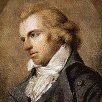Modern Languages and Literatures, Department of

German Language and Literature Papers
Document Type
Article
Date of this Version
6-12-2001
Abstract
Schulz-Grobert argues that scholars' pursuit of a phantom Low German original, and their "fixation" on Herman Bote as its author, have directed scholarly attention away from the role the editors in Strassburg played in its production. While TE scholarship to date is in agreement that a Strassburg editor had a hand in the final version of the book, Schulz-Grobert argues that the circle of humanists and literati associated with Grüninger's press in Strassburg were alone responsible for producing the book.There is no need to assume the existence of a Low German original, he states, nor does the "ERMAN B" acrostic, possibly a product of happenstance, necessarily point to Herman Bote's authorship.
Schulz-Grobert prefers not to name a sole author of Till Eulenspiegel in Strassburg, but examines the circle of literati in Strassburg, including Geiler von Kaysersberg, Brant, Wimpheling, Bebel, Pauli, and Murner, and their ties to Grüninger's press. But he directs special attention to one of Grüninger's Korrektoren, Johannes Adelphus Muling. Well connected both to the Strassburg literati and to Gruninger's press, familiar as author and translator with the texts to which we find parallels in Till Eulenspiegel, Muling emerges in Schulz- Grobert's study as the key figure among the Strassburg "fathers" of Till Eulenspiegel.
Possibly the most valuable part of this study is found in the lengthy appendix, where for each Historie the author has provided a catalogue of international literary parallels.


Comments
Published in Sixteenth Century Journal, Vol. 32, No. 2. (Summer, 2001), pp. 547-549. Journal website: http://escj.truman.edu/journal.html
Used by permission.